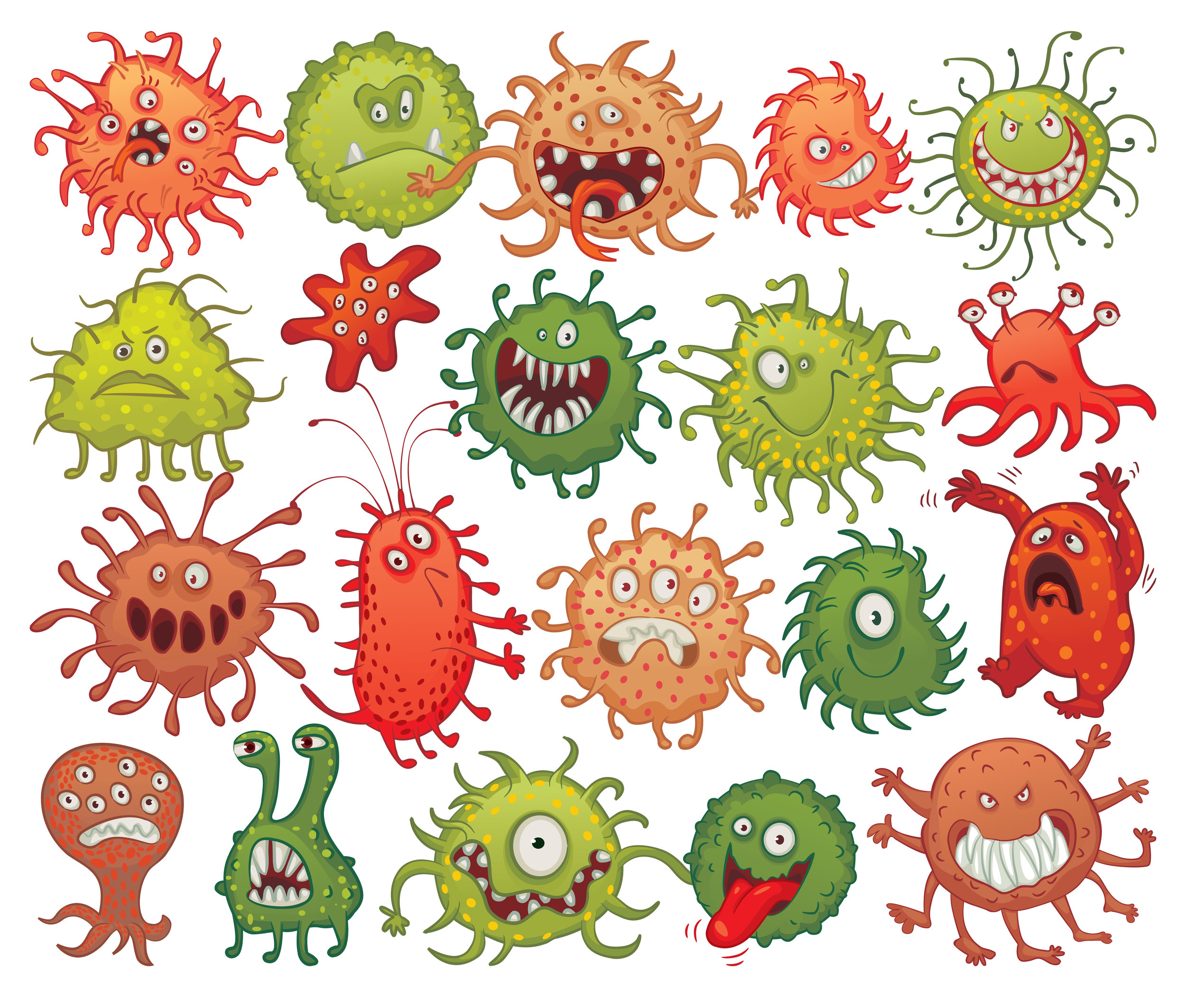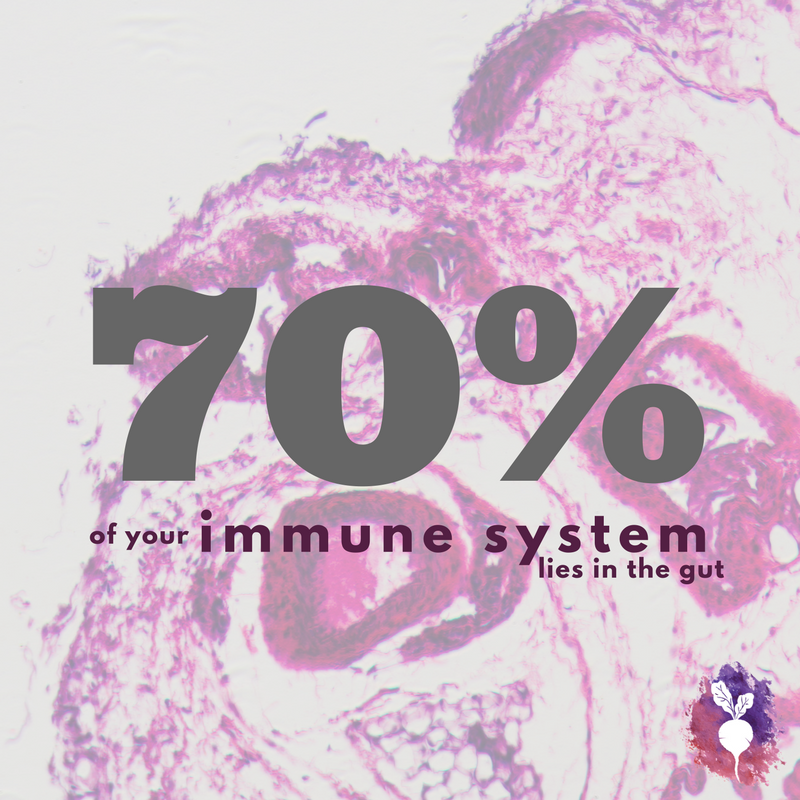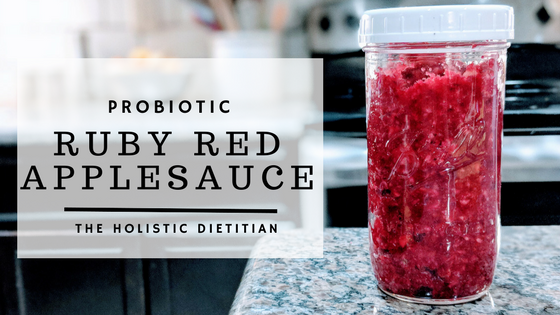
The microbe population living within us, including on our skin, within our oral cavity and gut, is what makes up our “microbiome”. Our microbiota contains hundreds trillions of microorganisms, including at least 1000 different species of known bacteria with more than 3 million genes.1 That means that we are more bacteria than we are actually human cells!
The theory is that development of the microbiome begins at birth. Sterile inside the uterus, the newborn’s digestive tract is quickly colonized by microorganisms from the mother, the environment in which the delivery takes place, the air, etc. The infant’s intestinal flora continues to be dependent on how the infant is fed and continues to evolve throughout our entire life, based on different environmental and diet factors.
Ever get an upset stomach when stressed or anxious? What is most intriguing is that research is emerging that shows that this communication between the gastrointestinal tract and the brain is bidirectional. Just as an anxious mind can cause an upset stomach, stress in the gut communicates with the brain and can set the stage for brain and related diseases. Just consider the fact that 90% of serotonin (the “feel good hormone”) is created in the gut. Folic acid, B12, Vitamin K, as well as other B vitamins are also created in the gut, which are essential for brain health as well as immune function. A healthy and well diverse ecology in our gut helps control inflammation (the basis of many degenerative conditions), strengthen intestinal wall’s integrity to prevent gut permeability, and produce important chemicals for brain health such as neurotransmitters. No wonder the gut is also know as our “second brain”.2
The diversity of the bacteria living in the gut are key components in determining the risk factors brain disorders and mental illness such autism, multiple sclerosis, Alzheimer’s, dementia, but also cancer, asthma, ADHD, food allergies, metabolic conditions such as diabetes and obesity, and autoimmune diseases.

Other Benefits of Healthy Intestinal Flora:
-Production of vitamins and minerals
-Aids in digestion, helps our intestines digest what our body may not be able to digest
-Helps “feed” and “nourish” the large intestine, which does not receive direct blood supply
-Defends us against other aggressive, potentially hazardous microorganisms
-Support urinary health, and reduce urinary tract infections
-Helps keep our digestive tract running smoothly and can even alleviate intestinal symptoms, such as abdominal pain, cramps, bloating, diarrhea, and constipation
-Strengthen our immune system, and even reducing allergies!
-Support women’s health by reducing infections as well as “seeding” the microbiome of the newborn.
-Reduce inflammation and inflammatory-diseases
-Reduce the risk for brain-related diseases
-Related to behaviors, depression, anxiety
A loss of healthy balance in the intestinal microbiota is called “dysbiosis”. Dysbiosis may be linked to health problems such as functional bowel disorders, inflammatory bowel disease, allergies, obesity and diabetes. Including foods that contain probiotics will help repopulate the intestines with healthy bacteria. Prebiotics, or the “food” for beneficial bacteria, help to allow growth of the “good” bacteria. Rebalancing the population of bacteria includes consideration of health history, lifestyle, diet, and environmental factors. Working with a Registered Dietitian who specializes in functional nutrition will aid in supporting the imbalances within the gastrointestinal system and assist in supporting the integrity of the intestines and their microbiota.

My kid loves this applesauce. Not only does it offer probiotics, but the rich red color comes from beets, which supports the liver and gallbladder and offers an array of nutrients including folate, vitamin c, magnesium, iron, phosphorus, and fiber. They have been shown to reduce blood pressure, fight inflammation, contain anti-cancer properties, and support detoxification. Your liver will love you for eating beets.
For the starter, I actually used my favorite non-dairy option: juice kefir drink, Ether Elixir, made by a local Fort Worth company. If you’re local to me, you can also purchase it through our local Buyers Club, ROCK Farmers Market. For this recipe, I used the beet flavor, because it was just appropriate!
INGREDIENTS
6-7 medium apples
1 small beet
2 Tbsp whey or water kefir
1 tsp cinnamon
1 tsp Himalayan sea salt
PREPARATION
1. Peel, core, and chop apples into chunks. Peel and chop beets.
2. Process in blender or food processor until blended to desired consistency.
3. Mix in whey, cinnamon, and salt.
4. Pour applesauce into quart-sized jar, ensuring to leave an inch of headspace. Cover tightly with lid or coffee filter secured with rubber band.
5. Leave at room temperature for 1-3 days. If using a tight lid, be sure to burp the jar daily to release pressure.
6. Move to cold storage and enjoy! Stays good in the fridge for 2 months.
Great post Amy! Thanks for sharing the recipe. I modified it a bit, adding cranberries to create a "relish" for our Christmas meals- so festive. Can’t wait!
Great idea! What a wonderful way to sneak in some probiotics for the Christmas meal! 🙂